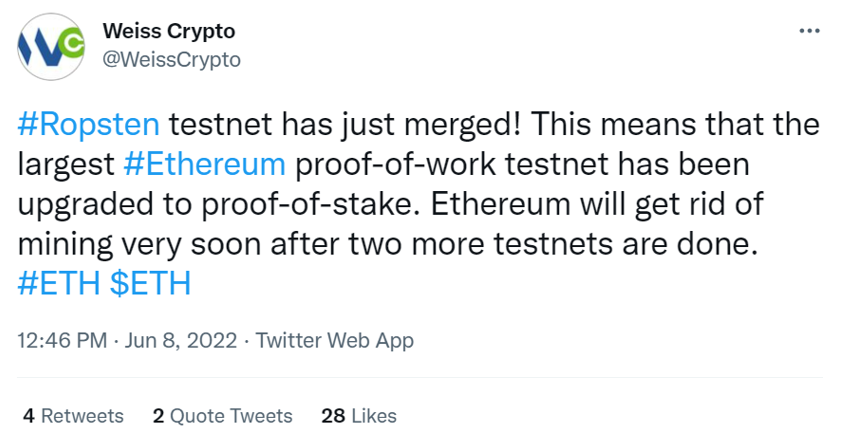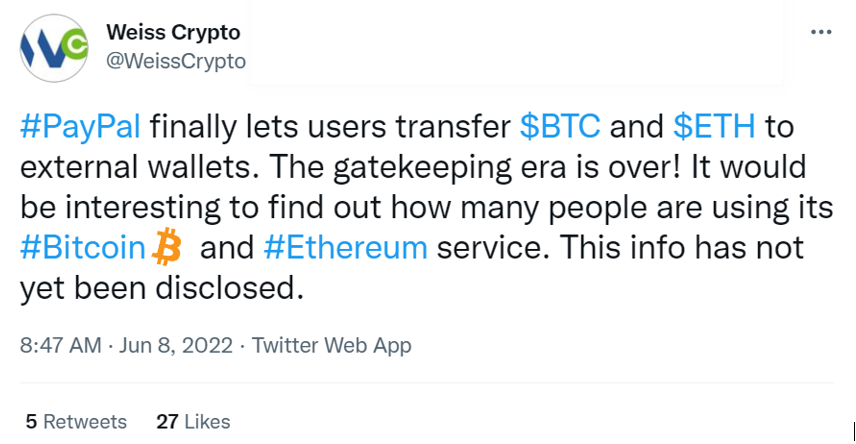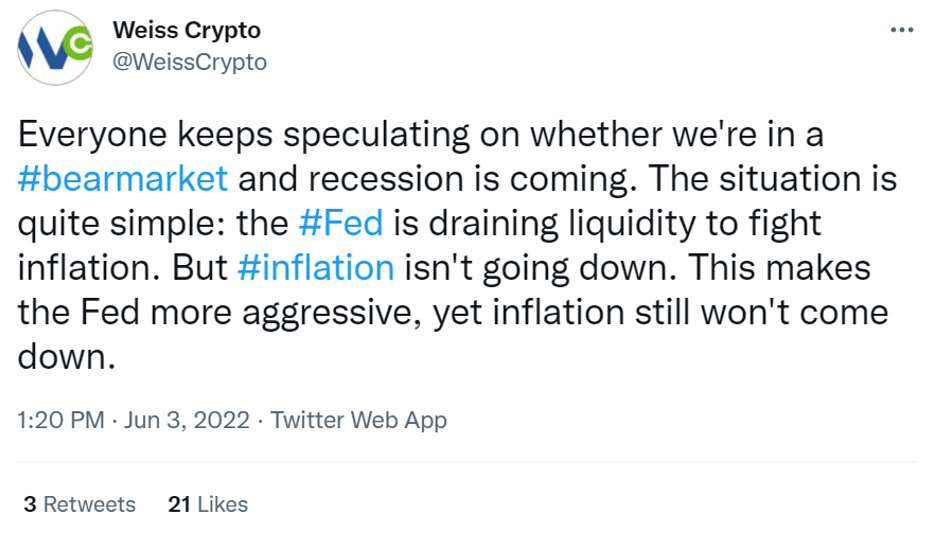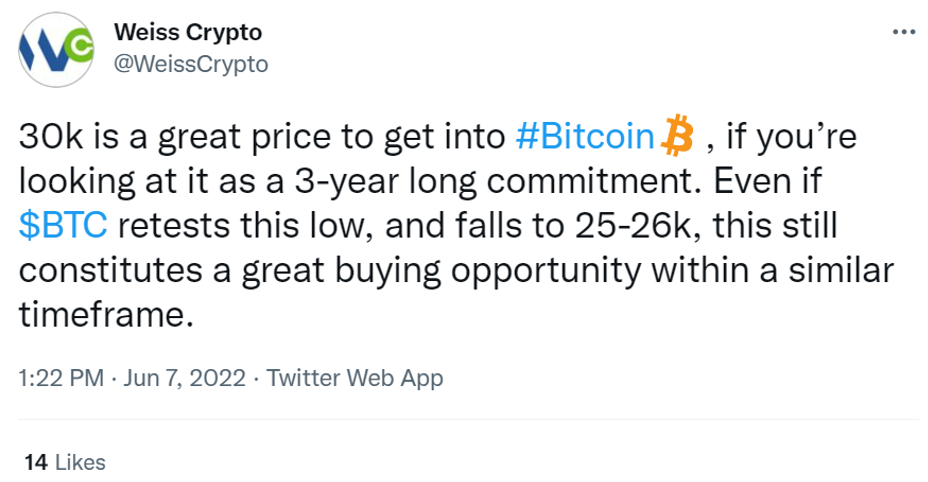Crypto Continues Making Developmental Strides Despite Stagnant Price Action
 |
| By Jurica Dujmovic |
The sideways price action is still going strong, and it seems like there's no end in sight. But this doesn't mean that the crypto industry itself has remained stagnant!
With the recent Ropsten testnet merge, there's light at the end of the tunnel:
Ropsten, which is the oldest testnet for the Ethereum (ETH, Tech/Adoption Grade "A") network, allows for blockchain development experimentation without risking actual coins. This merge is critical because it will help engineers test the new proof-of-stake (PoS) consensus mechanism.
As a reminder, PoS chooses validators randomly based on their stake — the amount of crypto they have locked up in the network. Ethereum is still running on a proof-of-work (PoW) system, where validators complete complex problems to verify a transaction.
Under the PoW method, Ethereum has proven to be costly and slow during periods of high activity, which led to the rise of Ethereum alternatives and Layer-2 solutions — sidechains that can validate transactions quicker and store them on the Ethereum basechain at select intervals. Hence the transition to PoS.
The Merge completion will ensure the success of Ethereum's final transition from a PoW to a PoS system, which is set to begin in August. As Ethereum becomes cheaper and faster to use, we can expect more developers to flock to the network, meaning more dApps and more users relying on ETH.
Another nice development in adoption this week came when PayPal (PYPL) announced it would allow users to transfer crypto to external wallets:
If asked whether I'd use PayPal's crypto "feature," I'm likely to respond with a resounding "no."
With punitive fees on its fiat transfers and with a plethora of amazing crypto wallets and apps already available to help me move my money around, I see no use in relying on an outdated payment processor for my crypto-related transfers.
Still, this is a window into the crypto space for new users who are unfamiliar and unsure of where to start. While I wouldn't choose it over the number of secure crypto wallets available, PayPal's decision will help bring that functionality to a wider audience.
Zooming out to look at the macroeconomic situation reveals another development: Crypto regulation — always a constant debate — is progressing through the halls of Congress once again, as Alex Benfield touched on yesterday.
Unlike previous attempts at regulation, Senators Cynthia Lummis (R-WY) and Kirsten Gillibrand's (D-NY) proposal would categorize cryptos as commodities, rather than securities. I found this nifty section-by-section review of the bill, and here's Alex's take:
However, not all analysts in our team share this viewpoint. Nilus Mattive, associate editor of Weiss Crypto Investor, voiced his concerns in this short but insightful video he did with Financial News anchor Jessica Borg.
In summary …
If you click on the image above, you can watch the full interview. As someone who's been around since the early days of crypto, I must say I agree with Nilus. Submitting crypto to rules and regulations that will turn it into yet another fiat-type currency goes against why crypto was created in the first place. Mass adoption is a worthwhile goal to aim for, but not if the price to achieve it is for crypto to lose its raison d'être.
We know the pitfalls of traditional finance (TradFi). Inflation is at 40-year highs and central banks are seemingly unable to staunch it without irreparably hurting the economy. Just look at the price of commodities lately! Gas prices are still sky high and going higher, food is becoming more expensive and global economies are faltering.
Why? Well, like any complex problem, there are multiple factors. But here's the biggest in our opinion ...
That's why now, more than ever, it's vital to maintain crypto's decentralized and trustless nature. If cryptocurrencies want to act as a life raft, they need to uphold the standards that distinguish them from fiat assets.
Otherwise, the crypto space is likely to share the same fate as TradFi.
If you're interested in learning more about inflation, Weiss Ratings founder, Dr. Martin Weiss, is holding three emergency briefings next week to break down what's likely to happen next, recommend seven urgent steps for portfolio protection and reveal a breakthrough strategy for profit in times of crisis.
It's completely free. All you need do to is save your seat before June 13. And as we wait for the world to catch on to the fact that crypto is the answer to TradFi's problems, there are plenty of opportunities for savvy investors. Yes, even in a stagnant market like this.
Take Bitcoin (BTC, Tech/Adoption Grade "A-") for example:
That looks like an opportunity worth investigating to me. Especially if you believe, as we do, that Bitcoin and other top cryptos aren't just here to stay but will eventually overtake fiat as primary currencies.
Which top cryptos will those be? Of course, we don't have a crystal ball. But I suggest you check out the top Weiss-rated cryptos to start.
What is your take on the current market situation? Do you agree with our analyses? Let us know by tweeting at us using the #WeissComment hashtag!
Until next week, stay safe and trade well.
Best,
Jurica Dujmović







